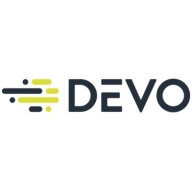

INETCO Insight and Devo compete in the network monitoring and security analytics space. Devo appears to have an upper hand with its comprehensive feature sets, offering significant value for companies dealing with large data environments and complex data landscapes.
Features: INETCO Insight is known for real-time transaction monitoring, efficient anomaly detection, and effectiveness in financial transactions. Devo offers advanced analytics, scalable data ingestion, and handles complex data well, providing a notable advantage in sophisticated analytics capabilities beyond INETCO's offerings.
Ease of Deployment and Customer Service: INETCO Insight provides straightforward deployment with dedicated customer service, facilitating easier setup and troubleshooting. Devo's deployment is more complex due to scalable options but is supported by thorough documentation and responsive support teams. INETCO allows for quick initiations, while Devo supports long-term satisfaction through robust assistance.
Pricing and ROI: INETCO Insight presents lower setup costs, appealing to smaller enterprises with rapid ROI through reduced transactional issues. Devo, with higher setup fees, justifies its cost through expansive features that yield substantial ROI over time, particularly valuable for extensive data processing and security insights.
| Product | Market Share (%) |
|---|---|
| Devo | 4.8% |
| INETCO Insight | 1.0% |
| Other | 94.2% |


| Company Size | Count |
|---|---|
| Small Business | 7 |
| Midsize Enterprise | 4 |
| Large Enterprise | 11 |
Devo is the only cloud-native logging and security analytics platform that releases the full potential of all your data to empower bold, confident action when it matters most. Only the Devo platform delivers the powerful combination of real-time visibility, high-performance analytics, scalability, multitenancy, and low TCO crucial for monitoring and securing business operations as enterprises accelerate their shift to the cloud.
We monitor all IT Operations Analytics reviews to prevent fraudulent reviews and keep review quality high. We do not post reviews by company employees or direct competitors. We validate each review for authenticity via cross-reference with LinkedIn, and personal follow-up with the reviewer when necessary.